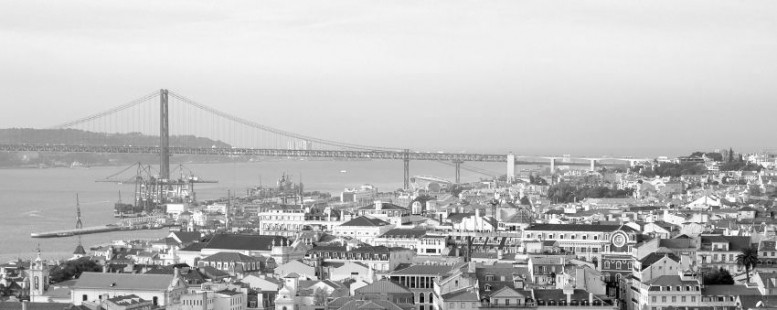Our Opinion: 2015
Passports for sale

It is good to be visiting clients in Lisbon, Portugal. They have spent several years concerned at the faltering economy but there is now a clear mood of optimism returning. Those I visited told me that business remains significantly below pre-crisis levels, but at least they are no longer loosing money.
That mood of cautious optimism is visible throughout the city and in marked contrast to my last visit when economic woe was in the forefront of virtually every discussion I had.
One market which appears to be growing against the odds is real estate. Whilst prices are still slipping in much of Europe, and those here remain 20% -30% below their peak, prices for properties over €500,000 in Lisbon and Porto (in particular) are strengthening. The airport now resembles an estate agent with displays and advertisements everywhere for properties for sale. Signage is not in Portuguese, or English. But in Mandarin.
When foreigners are attracted to a country, a consequence may be demand for real estate and an increase in prices. In Portugal, the reason foreigners (particularly Chinese) are buying property is nothing to do with a desire to hold property, or to have a connection with the country. It is merely a way of securing residency rights in Europe – and the Portuguese government has promoted that as a revenue earner to help its way out of recession.
Living in London, I am quite used to property being promoted to international clients, and particulars are often printed in several languages. Here, though, the focus is extraordinary. I said yes when my hotel asked me if I wanted an English language newspaper each morning. I was surprised though at the title of the paper delivered each day – The China Daily.
Whilst a number of countries offer schemes to attract those seeking residency, Portugal has proved to be the most popular scheme since its 2012 launch. In return for a property purchase above €500,000, the applicant will gain an investor visa for a family including dependent children. There is no need to live in the property – it can simply be let. The visa gives the right of travel throughout the EU Schengen zone (the UK is, therefore, excluded) and can be renewed every two years providing the applicant spends merely two weeks in Portugal in that two year period. One of the most attractive options is the ability to apply for permanent residency after five years and citizenship after six years. Again, without the need to reside in Portugal. This is one of the simplest ways of accessing a EU passport with the right to live and work in all EU countries.
Spain has a similar scheme and, but it takes 10 years to establish citizenship. Greece, too, is trying to increase demand for its real estate by offering a residency scheme although citizenship is not available. Bulgaria is promoting itself too although, so far, with limited success.
Cyprus requires just €300,000 real estate purchase as well as a deposit of €30,000 in a local bank account. This is of little value since Cyprus is outside the Schengen visa zone. However, citizenship is granted immediately to those buying property over €2.5m. The resale value of such property is suspect, but it gives the immediate right to work, travel and study in the EU, including the UK.
Malta offers citizenship and a Maltese passport after just one year’s residency, to those committing to a residence in Malta, with a minimum value of €350,000, for a minimum of five years. Investors must make a minimum contribution of €650,000 to the national development fund set up by the government, invest €150,000 in government approved financial instruments and commit to a residence in Malta for a minimum of 5 years. Each family member also has to contribute €25,000 to the development fund.
It seems strange offering passports and citizenship as a by-product of a real estate deal. The UK programme is offered to those investing in assets designed to stimulate the UK (notably excluding property) and showing a commitment to living in the country.
It is odd that my biggest observation on this visit to Lisbon is not the recovery in Portugal itself – although that is evident – but the real attraction that Europe continues to provide, despite its economic woe, particularly for the stability, education and security that the continent offers. There is a bewildering choice of schemes and ways of securing a EU passport. It is a shame, though, that people are making that decision based on the sales tactics of commission hungry property salesman. They deserve professional, regulated advice, given by a qualified adviser who will act in an individual’s best interests and advise on the right option for them, their plans and financial situation.
It is fortunate that such advice is available in London.
